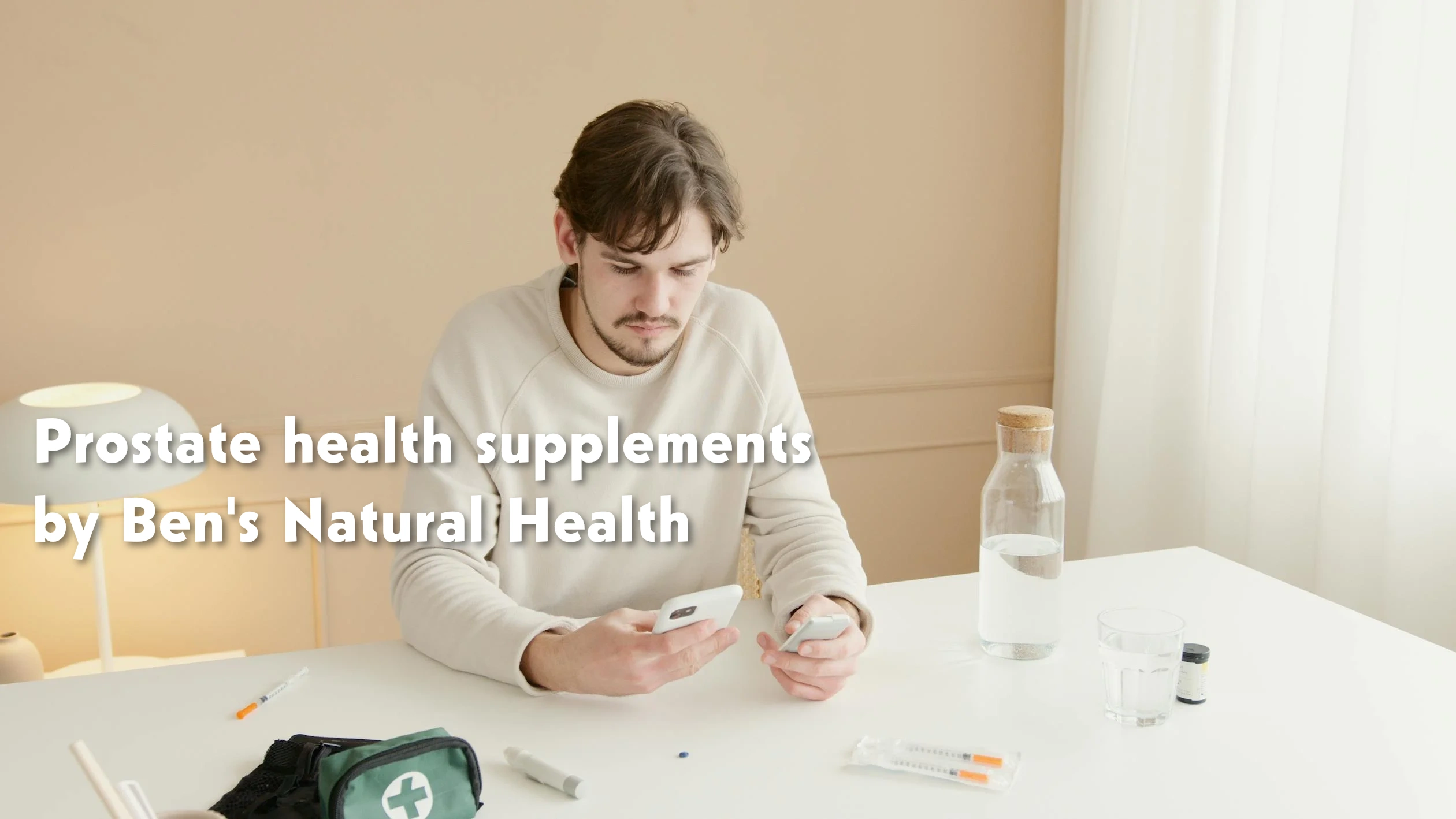Blog
5 Prostate-Friendly Vitamins That Support Wellness and Prevent Disease

Many people want to learn how to keep their prostate healthy as they age. Diet and vitamins can play an important role in helping the body function at its best.
Learning about 5 prostate-friendly vitamins can help people support wellness and may lower the risk of disease. Adding these nutrients to a daily routine, along with using prostate health supplements by Ben’s Natural Health or other blends made with ingredients like lycopene, selenium, and vitamin D, can be an easy way to support urinary comfort and overall well-being. Making informed choices today can lead to better prostate health in the years to come.
1. Lycopene – a powerful antioxidant linked to reduced prostate inflammation
Lycopene is a red pigment found in tomatoes, watermelon, and pink grapefruit. It is a type of antioxidant that helps protect the body’s cells from damage. Research shows that higher lycopene intake may support prostate health.
Several studies suggest that people who get more lycopene from their diet have a lower chance of developing prostate problems. Lycopene may help lower inflammation in the prostate and slow the growth of certain cells.
Eating foods rich in lycopene, such as cooked tomatoes, is an easy way to add this nutrient to meals. Lycopene seems to work best when eaten regularly as part of a balanced diet. Even small increases in daily lycopene can have benefits for prostate health.
Lycopene supplements are available, but most experts recommend getting it from food instead. This is because whole foods provide other important nutrients that also support health.
2. Saw Palmetto – commonly used to support prostate health and reduce urinary symptoms
Saw palmetto is often used by people looking to support prostate health. Many men take it to help manage symptoms of an enlarged prostate, also known as BPH. This can include frequent trips to the bathroom, especially at night. Some research suggests that saw palmetto may help lessen these urinary symptoms. The plant extract is made from the berries of the saw palmetto plant and is usually taken as a capsule or tablet.
The effects of saw palmetto can vary from person to person. While some people notice a difference, others may not see much change. Saw palmetto is considered safe for most adults when used as directed. Before starting a new supplement, it is smart to talk with a healthcare provider. They can give advice and make sure it is a good fit based on other health conditions or medicines.
3. Selenium – an important mineral that may help lower prostate cancer risk
Selenium is a mineral that the body needs in small amounts. It acts as an antioxidant and helps protect cells from damage.
Research suggests selenium may lower the risk of prostate cancer, though results are not always consistent. Some studies have found that selenium helps repair DNA damage linked to a lower chance of certain cancers.
Dietary sources of selenium include Brazil nuts, fish, meat, and whole grains. If people eat a balanced diet, they get enough selenium.
Taking too much selenium in supplement form can be harmful. High levels might cause health problems, so it is best to meet your needs through food whenever possible.
Talking with a healthcare provider before starting any supplement to help balance benefits and risks is always a good idea.
4. Vitamin D supports immune function and may reduce prostate cancer risk

Vitamin D helps the body use calcium, which is important for bone health. It also keeps the immune system working properly. Some research suggests that people with higher levels of vitamin D may have a lower risk of developing prostate cancer. However, scientists are still studying how much of a difference vitamin D makes for prostate health.
Older adults and people who spend little time in the sun might not get enough vitamin D. It can be found in fatty fish, egg yolks, and fortified milk. Supplements are another option when getting enough from food or sunlight is hard. Although vitamin D supports the body in many ways, it is not a confirmed way to prevent prostate cancer. Talking with a healthcare provider can help someone decide whether to increase their intake.
5. Beta-Sitosterol – clinically studied for improving urinary flow and reducing urgency
| Aspect | Details |
|---|
| What it is | A plant-based compound found in fruits, vegetables, seeds, and nuts. |
| Primary Benefit | Helps support prostate health and improve urinary flow. |
| How it works | Supports better bladder function—not by shrinking the prostate, but by helping the bladder empty more fully. |
| Urinary Symptom Relief | May reduce urgency, improve flow, and lower night-time bathroom visits. |
| Lifestyle Impact | Helps reduce daily interruptions caused by frequent urination. |
| Supplement Use | Commonly found in prostate health supplements; considered safe for regular use. |
| Side Effects | Generally mild or minimal for most users. |
Conclusion
Getting enough vitamins D, E, and C, along with minerals like selenium and zinc, can support prostate health. These nutrients may help the body’s natural defences and support normal cell growth. A balanced diet with fruits, vegetables, and whole grains remains important. People should always talk with a healthcare provider before making big changes or starting supplements.
Simple lifestyle changes and wise choices can make a difference for prostate wellness.
